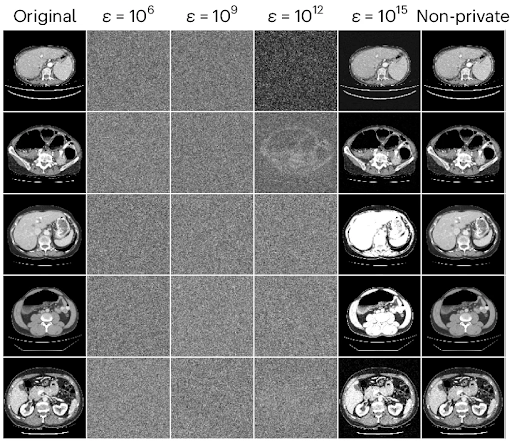One important part of health informatics is using Electronic Medical Records (EMRs). EMRs are digital files that hold patient information like medical history, medicines, allergies, lab results, and treatment plans. They are meant for use within one medical office. This is different from Electronic Health Records (EHRs), which can be shared between different healthcare places.
In the United States, EMR systems such as Epic, Cerner, and Meditech are commonly used. These systems keep patient information in one place so healthcare workers can access it quickly. Quick access helps doctors make faster and more accurate diagnoses and treatments. It also lowers mistakes that happen when paper records are lost or incomplete. EMRs also make it easier to share data safely inside the medical practice, which helps teamwork.
EMRs help make office work faster by improving tasks like scheduling appointments, billing, and communicating with insurance. These improvements save time and money. For example, they reduce repeated tests and paperwork, which cuts costs and shortens delays in patient care. Owners and managers who see these benefits can better use their resources and focus on patient care quality.
EMR systems can also give patients electronic summaries of their visits and educational information. This helps patients take part in their own care and follow their treatments better. Patient portals connected to EMRs let users ask for and share health data, making it easier to talk with healthcare providers.
Practice Management and Operational Efficiency
Health informatics helps manage medical practices by making it easier for doctors, staff, insurers, and patients to share information quickly. Practice managers get a central place to store data, which helps them make clearer and fact-based decisions.
Hospitals and clinics can use these tools to watch how work flows in real time. This helps find slow spots or problems. For example, scheduling software linked to EMRs can improve how appointments are booked, lower patient wait times, and make better use of providers.
Money-related tasks like billing and claims also do better with health informatics. Automation handles many manual jobs and cuts down on mistakes.
Good communication through health information technology helps different parts of an organization work together. This reduces repeated treatments or lost patient information. Also, real-time patient data lets providers update care plans based on how a patient is doing right now.
AI Call Assistant Manages On-Call Schedules
SimboConnect replaces spreadsheets with drag-and-drop calendars and AI alerts.
Supporting Clinical Decision-Making Through Health Informatics
Besides office benefits, health informatics helps with clinical decision support systems (CDSS). These systems look at patient data and give healthcare workers advice based on facts to improve diagnosis, treatment, and follow-up.
Doctors use decision support tools in EMRs and EHRs to get alerts, reminders, diagnosis tips, and warnings about medicine interactions. AI-driven tools also predict risks like hospital readmission, disease progress, or how a patient might react to treatment. This makes sure decisions rely on complete data, not just guesswork.
Personalized patient treatment is more common in U.S. healthcare now. It depends a lot on health informatics. By using patient data from records, wearable devices, and genetics, decision support systems help doctors customize treatments. For example, AI can suggest exact medicine doses or lifestyle changes based on a patient’s history and ongoing data.
AI Call Assistant Knows Patient History
SimboConnect surfaces past interactions instantly – staff never ask for repeats.
Artificial Intelligence and Workflow Automation: Enhancing Healthcare Delivery
Artificial intelligence (AI) and automation work with health informatics to make both front-office and clinical work easier and better. Companies like Simbo AI focus on phone automation and answering services. These help practice managers increase efficiency and make patients happier.
AI-powered phone systems can handle booking appointments, sending reminders, answering patient questions, and directing calls without needing a person. This cuts staff workload and reduces human mistakes in patient communication. Automated phone help is available anytime, so patients can reach their provider’s office after hours.
In clinics, AI tools can turn doctors’ notes into structured data automatically, removing the need for manual data entry. AI can also look through many medical images, lab tests, and patient records to find problems or patterns that might be missed. This helps catch issues earlier.
Automation also works in tasks like verifying insurance, processing claims, and checking rules compliance. Automating these jobs makes them faster and more accurate. It lets staff focus more on helping patients. Automations linked to EMRs can send alerts for follow-ups, preventive care, or medication refills to keep patients on track.
Using AI and automation in health informatics cuts costs and lifts care quality. It gives healthcare workers more time to handle complex patient needs instead of routine office tasks.
Training and Education in Health Informatics
Healthcare groups in the U.S. benefit from investing in education and training on health informatics. Positions like nurse informaticists, data analysts, and health information managers are important for setting up and running healthcare IT systems.
Training programs, including online courses, teach skills like computer programming, data analysis, healthcare IT standards (HL7, DICOM), and privacy rules such as HIPAA. Special training on AI, electronic record use, and security helps staff use informatics better every day.
Several universities and platforms offer focused courses for healthcare IT workers, such as Michigan Technological University’s Health Informatics Master’s degree and certificates in AI for healthcare, public health informatics, and data security. These programs support ongoing learning, which is important because healthcare technology changes fast.
HIPAA-Compliant Voice AI Agents
SimboConnect AI Phone Agent encrypts every call end-to-end – zero compliance worries.
Challenges and Considerations
Even though health informatics has clear advantages, medical practice managers need to watch for some challenges. Data security is a big concern since healthcare information is sensitive and has strict U.S. rules to follow (HIPAA).
Different health IT systems sometimes cannot work together smoothly. Although standards exist, sharing data without trouble between various EMRs, labs, pharmacies, and insurers is still not perfect. These gaps can slow down information flow and limit decision support benefits.
Training users and managing changes is also important. New digital systems need doctors and staff to get used to new ways of working. Without good training and help, adapting can take longer and hurt productivity.
Impact on Healthcare Outcomes and Costs
Research shows that good use of health informatics helps patients get better care and cuts healthcare costs. Hospitals that use informatics tools have lower death rates, shorter stays, and fewer quick readmissions. Better data and analysis let doctors act fast and correctly, avoiding problems and unnecessary treatments.
From a money view, automated workflows and good data management reduce office costs, repeated tests, and billing mistakes. This helps keep revenue steady and practice operations smooth.
Specific Considerations for Medical Practices in the United States
In the U.S., federal rules like the Affordable Care Act require health records to be digitized. This has sped up the use of health informatics. Practices must keep updating EMR and EHR systems to meet certification, support data sharing, and follow meaningful use rules.
There is also more focus on care models that pay based on quality and efficiency. Health informatics helps meet these goals by giving detailed data on care results and patient satisfaction.
The U.S. healthcare market is very competitive and complex. Practice owners must use health informatics not only for better clinical care but also to manage office and financial work well.
Medical practice owners, managers, and IT staff in the United States can gain much by using health informatics. From managing electronic medical records to using AI-powered tools and automating workflows, these technologies improve care and make operations more efficient. With ongoing training and attention to data sharing and security, health informatics can support good patient care and successful practice management in today’s healthcare setting.
Frequently Asked Questions
What is health informatics and its role in healthcare?
Health informatics is a rapidly growing field in healthcare that integrates technologies, tools, and procedures to collect, store, retrieve, and use health and medical data. It facilitates electronic access to medical records for patients, nurses, physicians, administrators, and other stakeholders, enhancing data-driven decision-making and improving care delivery.
How does health informatics improve patient service delivery?
By enabling quick and seamless sharing of health information among healthcare professionals and patients, health informatics improves practice management. This leads to more informed treatment decisions, coordinated care, and personalized patient management, ultimately enhancing patient outcomes and service quality.
What are the main stakeholders benefiting from health informatics?
The primary beneficiaries are patients, nurses, hospital administrators, physicians, insurance providers, and health information technology specialists. Health informatics ensures that these stakeholders have timely electronic access to relevant medical and health records for better collaboration and decision-making.
How does health informatics combine different disciplines?
Health informatics bridges nursing science, data science, and analytical disciplines to efficiently gather, handle, interpret, and communicate health data. This interdisciplinary approach ensures that the information is meaningful and accessible for healthcare specialists and decision-makers.
What methods were used to gather the research data in the study?
The study is based on an extensive scoping review using keywords like ‘Health informatics,’ ‘Technologies,’ and ‘Healthcare.’ Data was collected from reputable databases such as Scopus, PubMed, Google Scholar, and ResearchGate to identify and analyze the most relevant papers.
What are the significant applications of health informatics in healthcare?
Health informatics applications include electronic medical record management, data analysis for individual and group patient health, decision support systems, and enhanced communication among healthcare stakeholders, all contributing to optimized treatments, procedures, and training.
What limitations or challenges are associated with health informatics?
Although not detailed in the extracted text, health informatics faces challenges in data security, interoperability, user training, and integration into existing healthcare workflows, which can affect the efficacy and adoption of these systems.
How does health informatics impact healthcare organizations at different levels?
Health informatics addresses issues not only at the organizational macro level, improving overall management and policy decisions, but also at the individual patient level by supporting personalized care through innovative technologies and best practices.
What is the importance of electronic access to medical records?
Electronic access allows timely, accurate sharing of patient data between healthcare professionals and patients, enabling informed decision-making, reducing errors, enhancing coordination, and streamlining healthcare delivery processes.
How can healthcare organizations leverage health informatics specialists’ expertise?
Health informatics specialists use data to support clinical and administrative decision-making by identifying specific, relevant information that optimizes therapy, procedures, and training, ensuring best practices and improved patient care delivery.
The post Applications of Health Informatics in Healthcare: From Electronic Medical Record Management to Decision Support Systems for Personalized Patient Treatment first appeared on Simbo AI – Blogs.











